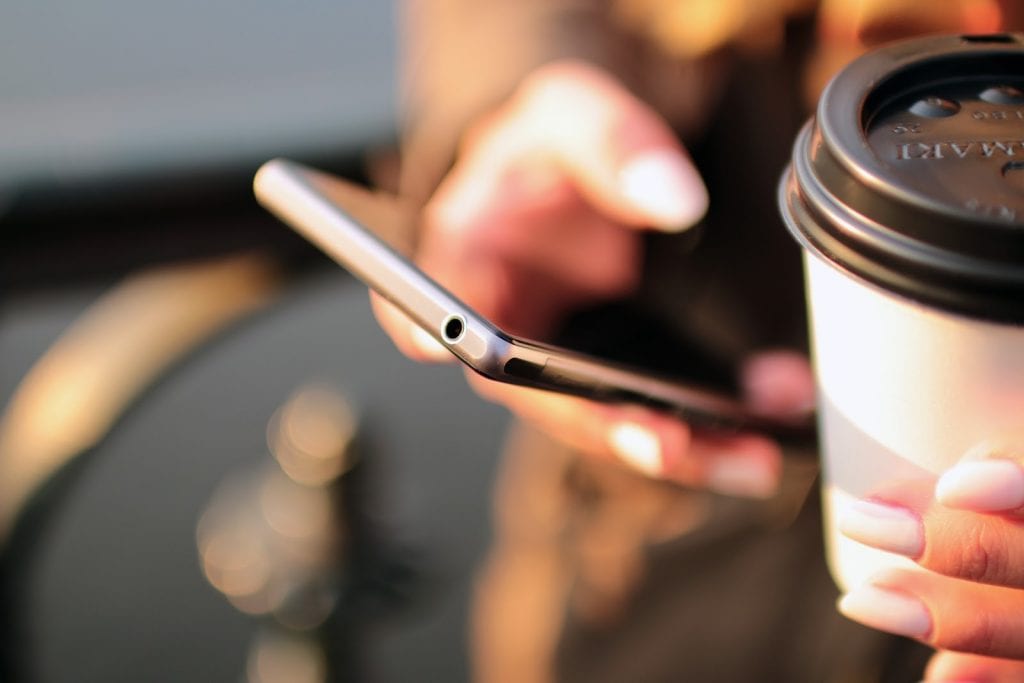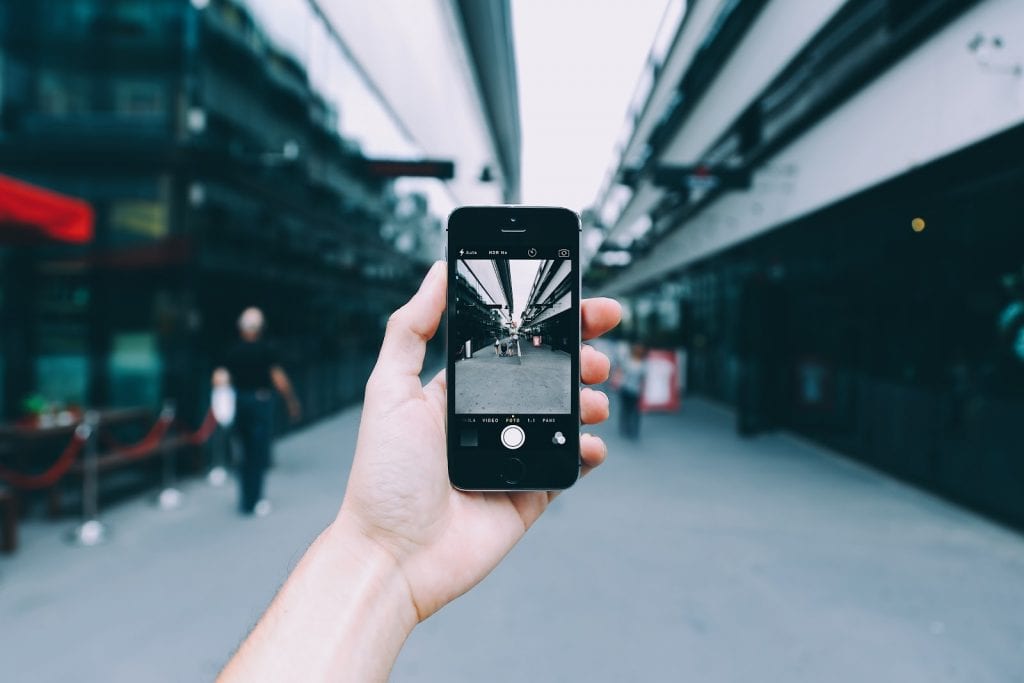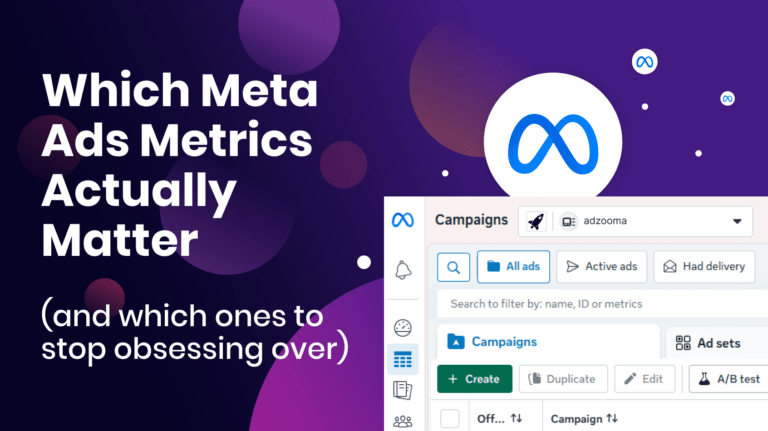TL;DR
- Phone addiction is a paradoxical situation that eliminates boredom but makes us feel guilty about our own success.
- The impact of phone addiction is known to cause mental health problems, with people 8.25x more likely to gain nomophobia than be successful.
- Freud’s psychoanalytic theory and B. F. Skinner’s theory on Operant Conditioning symbolises the reasons behind addiction.
- Marketers can use the 2008 study on Environmental Conservation in Hotels to see how psychology can influence consumer behaviour.
You’re not the only person who swears you’ve heard your phone vibrate when it hasn’t.
More often than not, we’re so used to picking up our phones that we do it without even realising. When we do, we end up scrolling through the same people’s posts until we’re bored again.
This happens to all of us, everywhere we go. Whether we’re watching adverts, waiting for an appointment or procrastinating at work, our phones end up in our hands as if they’re magnetic.
It’s part of the reason people turn their phones upside down when they’re at the table – not because they’re hiding something, but because they won’t be able to stop themselves from replying to a message when it lights up. Even without a notification, force of habit will cause them to pick it up and break the cycle.

If you’ve ever left your phone for a while and came back to no messages, you’ll know that we too expect some sort of reward for using our phones less. The reason we feel disappointed is because we expect the regular fixes we get throughout the day to mount up into a larger wave of happiness.
Of course, this doesn’t happen, because we pick up our phones whether we have a notification or not: filling a hole that was only empty in our unconscious mind.
Ignorance is bliss
If this sounds all too similar, know that everyone around you is in the same boat. Some more aware than others, and some claiming they’re just bored rather than addicted. These are the people outside the boat, swimming to the other side of the river gasping for air.
The same people in fact, who turn off notifications from Screen Time because they’re mortified at how much time they’ve spent online and how little satisfaction they gained from it. Being able to see how many times they’ve picked up their phone makes it seem far too real – the same reason people prefer to pay with card instead of cash, as it never seems as hard on the wallet.
It’s the same for people who turn off notifications for the News app, because they want to be sure their phone lights up only for important reasons. Those who keep their notifications on, in a similar sense, want to fill the hole we spoke about earlier, although we can see now that it’s only empty because we made it that way.
Catch-22
Catch-22, an illogical dilemma a person cannot escape from because of contradictory limitations, was first written about in Joseph Heller’s satirical war novel. Orr, one of the fictional characters, was considered insane if he willingly continued to fly dangerous combat missions, but if he formally requested to be relieved of such missions, the very act of making the request would prove that he was sane and ineligible to be relieved.
Nowadays, it might be that medication prescribed for a viral infection soothes your throat, but incurs side effects such as low moods, anxiety and sadness. By refusing to take the medication in fear of the side effects, the pain and stress of the infection could make your pre-existing mental health issues twice as much.
The impact of phone addiction often feels more impactful than this, for the sole reason we cannot stop ourselves from being addicted. Like a drug, the repeated exposure causes our nerve cells to communicate in a way that makes us want more, driving us to chase it until it’s in our hands.
Respectively, our cure for passing time, feeling validated and seeking attention is often found in our phones. But the apps we use to fulfil these needs remind us of the non-travelling, non-influencing, and non-luxurious lives we have, causing more damage than the boredom and loneliness we felt before.

Hara Estroff Marano concluded a similar idea in her 2002 study on depression, stating “the things a person needs to do to get well are the very things the illness makes it difficult for any person to.”
Regarding mental health, 66% of the population show signs of nomophobia and 92% of the population don’t achieve their lifetime goals. That means of the 8% who do achieve their goals, there are 8.25x as many who cannot live without their phones.
As humans, we are almost 10x more likely to develop a condition from missing our phones than we are to be successful.
Several psychologists, psychiatrists and well-known teachers such as Mariano Choliz and Sehar Shoukat have assessed this phenomenon, and each came to a similar conclusion: phone addiction does and will continue to impact mental health issues in adolescents, for as long as we depend on them as our main cause of happiness.
As well as this, data from Techjury shows:
- The average smartphone user unlocks their phone 150 times per day.
- 58% of smartphone users don’t go 1 hour without checking their phones.
- 71% of users usually sleep with or next to their mobile phone.
“Why don’t I feel addicted?”, you ask: because we’re only aware of these actions through our unconscious mind.
The unconscious mind
Though Freud (1915) didn’t invent the idea of the unconscious mind, his psychoanalytic theory of personality suggests the unconscious is a reservoir of feelings, thoughts, urges, and memories outside of our conscious awareness.
He likened the three levels of mind to that of an iceberg:
- The conscious mind, which consists of all the mental processes of which we are aware, often seen as the tip of the iceberg.
- The preconscious, in which thoughts remain until they “succeed in attracting the eye of the conscious”.
- The unconscious, consisting of mental processes that are inaccessible to consciousness but that make up the primary source of human behaviour.
As the unconscious is made up of feelings that are unacceptable or unpleasant, such as pain, anxiety, or conflict, this is where addiction lies.
In order for this to make sense, Freud’s personality theory (1923) saw the human psyche (personality) structured into three parts: the id, ego, and superego, all of which develop at different stages in our lives.
- The id consists of all the primitive and instinctive components inherited at birth.
- The ego is ‘that part of the id which has been modified by the direct influence of the internal world.’
- The superego incorporates the values and morals of society as seen in our parents and other associates.

Freud argued that whenever desires or wishes from the id threaten to emerge in thought or action, we begin to feel anxious. This anxiety then causes the ego to mobilise repression, become in denial and withdraw from situations, in fear of feeling helpless and powerless.
The person using a defence is generally trying to manage their anxiety and maintain their self-esteem, while at the same time developing a “false self” through keeping the unacceptable feelings out of awareness. A concept that rings true particularly for those with an addiction.
This scenario normally happens when our phones are running out of battery or we misplace it for a couple of seconds. Even when we land in a different country, most of us are itching to connect to the wifi.
When these things are impossible, like Freud described, anxiety kicks in.
The impact of this addiction and the clogs being triggered in our unconscious mind has seen the use of smartphones increase year-on-year. As Bankmycell’s 2019-2020 data shows:
- The average user will tap, swipe and click their phone 2,617 times per day.
- The average smartphone user checks their device 47 times a day, 17,155 per year.
- The average time spent on smartphones is 2hrs 51mins per day.
- 86% of smartphone users will check their device while speaking with friends and family.
I want it, and I want it now
According to B. F. Skinner’s theory on Operant Conditioning, behaviour that is followed by pleasant consequences is likely to be repeated, while behaviour followed by unpleasant consequences is less likely to be repeated. This is known as the Law of Effect – Reinforcement and has links to instant gratification.
To demonstrate this principle, Skinner conducted experiments using animals which he placed in a ‘Skinner box’ similar to Thorndike’s 1898 puzzle box.
Upon doing so, he identified three types of responses that can follow behaviour:
- Neutral operants: responses from the environment that neither increase nor decrease the probability of a behaviour being repeated.
- Reinforces: responses from the environment that increase the probability of a behaviour being repeated.
- Punishers: responses from the environment that decrease the likelihood of a behaviour being repeated.
Skinner showed how positive reinforcement worked by placing a hungry rat in the box. As the rat moved around the box, it would accidentally knock the lever on the side causing a food pellet to drop beside it. Noting the instant reward, the rats quickly learned to go straight to the lever in order to receive the food.
This type of positive reinforcement is one of the main reasons that we’re addicted to our mobile phones. Instant gratification has conditioned us to believe that true validation comes from the number of followers we get, taking us higher and higher on the dopamine ladder as more people like our pictures.
Before we know it, catch-22 strikes again.
The idea that we’re also obsessed with receiving validation from people online, is cemented by the phenomenon “Pics or Fake” – an argument that is set out to prove claims on website forums. It’s even defined in the Urban Dictionary – proving that we are becoming more and more addicted to life online.

Psychology in marketing
The psychological link between our mobile phones and our happiness is innate, from our early childhood through to our adolescents. When we were young, being the class clown would have gained validation from our friends, but landed us in detention and earned a bad reputation with the teacher.
This concept has been adopted by hundreds of marketers through the years, seducing our subconscious below our level of perception. A great example to learn from is Goldstein, Cialdini, and Griskevicius’ 2008 study: Using Social Norms to Motivate Environmental Conservation in Hotels.
Over two field experiments, the psychologists examined the effectiveness of signs requesting their guests’ participation in an environmental conservation program. Appeals using descriptive terms, e.g. “The majority of guests reuse their towels”, proved much more successful and superior to a traditional appeal on environmental protection.
When describing group behaviour that occurred in the exact room of which it was placed, e.g. “The majority of guests in this room reuse their towels”, the success rate was again, much higher.
Though some guests may have reused their towels as a gesture of goodwill, the majority of guests would have been influenced by psychology – through the hypothalamus in their limbic system.
The limbic system is a primitive defence mechanism that is permanently alert, perceiving emotions and making us react. It’s the system that causes us to react when we hear a baby cry or a car drives too close to the pavement and makes us jump.
In advertising, it’s this part of our brains that processes brand emotion and subconsciously stores information for future reference. If the emotional value is more than the act proposed (reusing towels to save the environment), we find ourselves “seduced” in favour of it, and see no reason to refuse.
The environmental conservation example was just one example of this, showing the ways in which brands can use psychology to influence consumer behaviour. In the 12 years since the study, the rise of technology and mobile phone usage has allowed brands to gain exposure far beyond real-life ads, such as through native marketing, social media promotions and retargeting.
Even if we used our phones less, which studies suggest won’t happen, opportunity for advertising is all around us: when we’re watching adverts, waiting for an appointment or procrastinating at work.
One thing is for certain: for as long as mobile phones are accessible and multifunctioning, we will use them to fulfil the hole we’ve created in our unconscious minds.




